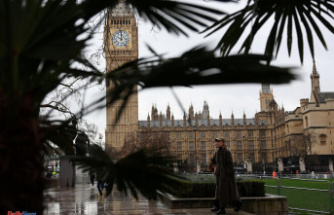A lower court ruling which had rejected the City Council's approved ballot language was overturned by the state's highest court. The wording was not adequate to describe the effect of a proposed charter amendment, which would replace Minneapolis' Police Department with a new Department of Public Safety. This "could contain" police officers, a district judge said.
Chief Justice Lorie Gildea stated in a three-page decision that the justices had concluded that the challenge of the ballot language was not up to the "high standard" set by the court in previous cases. To avoid preventing the beginning of voting, she said that the court would issue an opinion detailing its legal reasoning later.
Jim Rowader, City Attorney, stated that "now voters have the chance to make their voices heard about this ballot question."
The Supreme Court was pressured to quickly rule as early and absentee voting opens Friday at 8 a.m. in the Minneapolis municipal elections. Hennepin County District Judge Jamie Anderson rejected the language Tuesday. This was her second strike against the council's language. Gildea moved the case to the speed track Wednesday.
Both sides' lawyers stated that they expected the high court decision allowing the ballot language, given the late hour, to be the final word. A rally has been scheduled for Friday afternoon by leaders of the Yes 4 Minneapolis campaign.
Terrance Moore, an attorney representing Yes 4 Minneapolis, stated that "we're all very happy that the system worked." "Although it can sometimes look ugly, the process was completed from beginning to finish and the Supreme Court followed its precedent." The voters can vote on the ballot question.
The proposal is rooted in the "defund police" movement. This movement gained momentum after Floyd's passing last summer, which sparked protests and civil unrest, as well as a national reckoning about racial justice. Although the amendment doesn't use the term "defund," it would eliminate the requirement in the city charter that Minneapolis has a police department with at least one officer. The mayor and the City Council would decide on the details of the new agency's operation.
Yes 4 Minneapolis, the initiator of the initiative, insists the city will continue to have police officers if the amendment is approved by voters. However, the new department will be free to adopt a new approach to public safety, one that could decrease excessive policing in communities of color.
Sondra Samuels, an ex-council member, and Don Samuels, a former council member, were the ones behind the court challenge. They said that the ballot language left too many questions unanswered for voters about how the new division would be implemented, managed, funded, and staffed.
According to the All of Minneapolis anti-amendment group, it will begin running its first advertisement on Friday. The campaign's message is that residents should be concerned about the absence of a plan for the next steps if the proposal is approved. This is especially true considering the history of City Council members who have shown varying degrees support for defunding and abolishing police.
Yes 4 Minneapolis claimed in its Supreme Court filing that the Minneapolis Police Department wouldn't disappear automatically if the amendment was passed. According to the group, the Minneapolis Police Department would remain in existence under the current city ordinances until new laws were passed by the City Council to create the new agency. The council can keep the force in place for as long as it is necessary to ensure a smooth transition.












